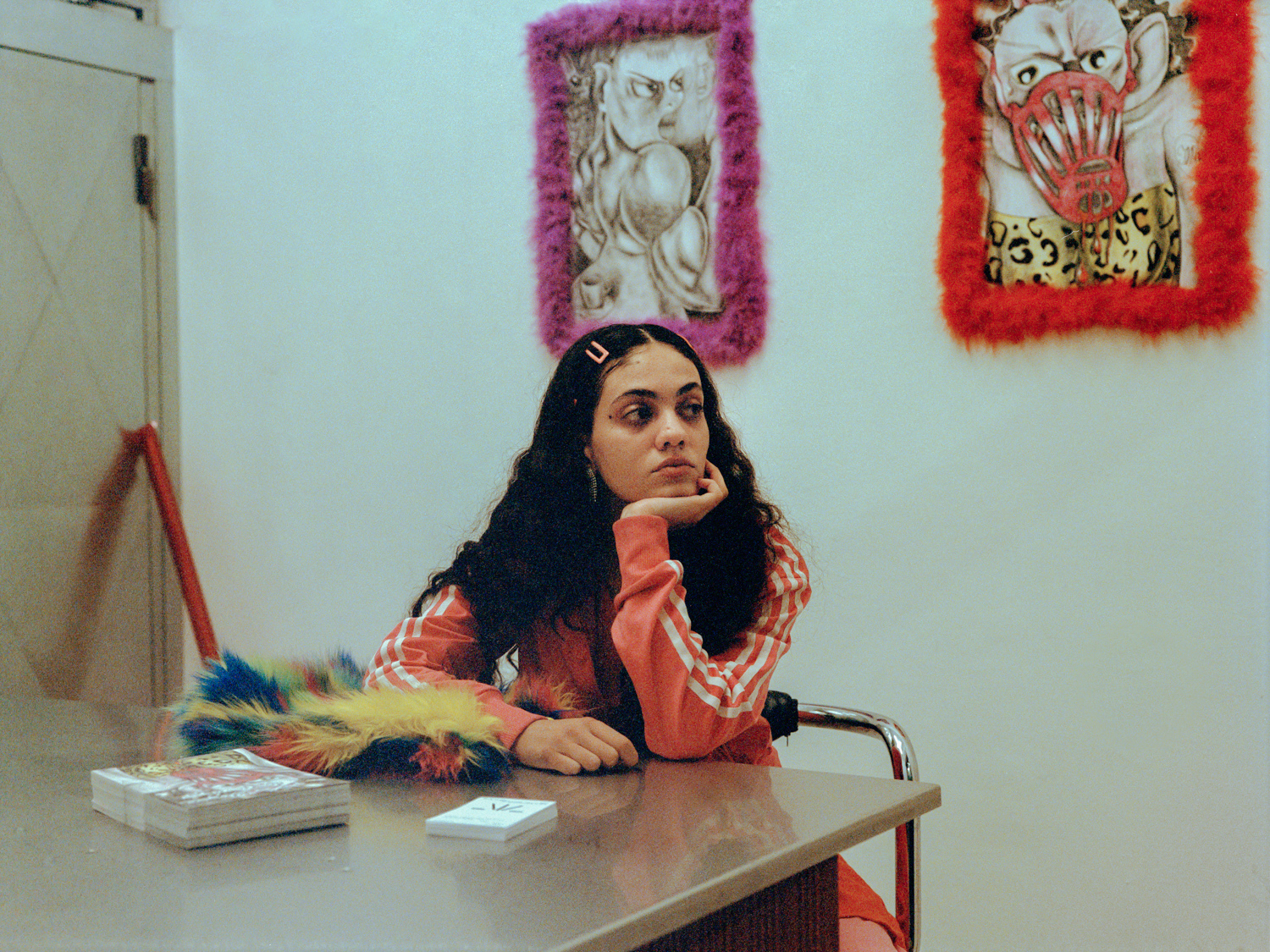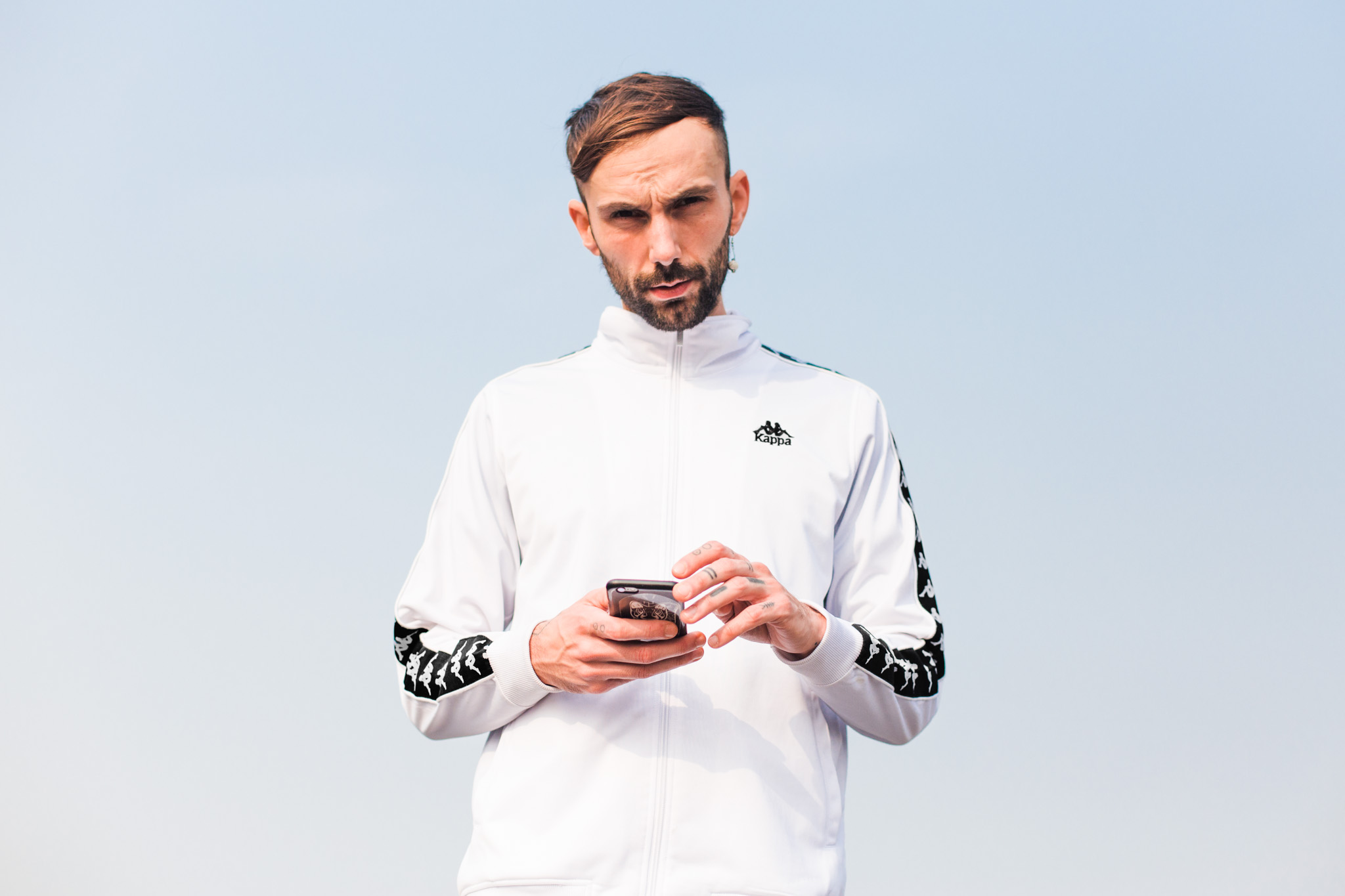
INTERVIEW: MANA (HYPERDUB RECORDS)
We’re overlooking Turin from the surreal vantage point of the roof of the Lingotto building, once Fiat factory, now a shopping centre and, since 2008, setting for the two biggest nights of Club To Club Festival.
Club to Club is a festival that has changed a lot over the years, growing and switching locations (shout out to Hiroshima Mon Amour), as it seeks to unite an audience divided between a desire to hear the latest trends in electronic music and a love for the classic sounds. Last year, the festival programmed Total Freedom and Autechre, this year Kraftwerk and Arca & Jesse Kanda.
Over the years, we have been involved as partners, reporters and even guests at Club To Club with the Ptwschool Showcase, and somebody who has been by our side at every single edition is Daniele Mana: Vaghe Stelle, now known simply as Mana. Various different elements emerged in our long chat to the Lingotto roof racetrack from Porta Nuova Station, and we have tried to encapsulate them in these questions. Both interviewer and interviewed are also aware that this is a period of personal change and growth, Mana with a new name and Ptwschool with a new site.
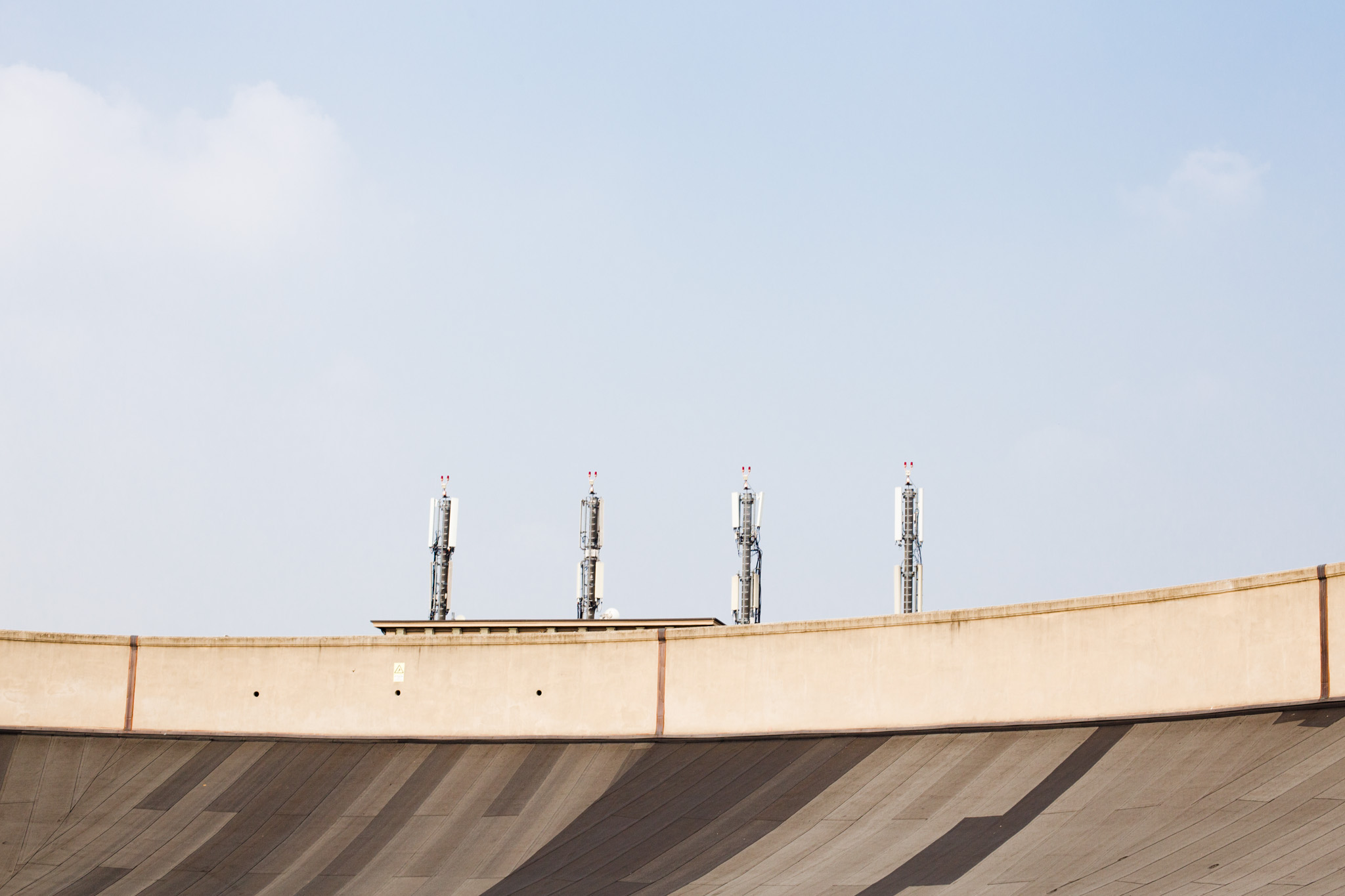
Hi Daniele, we started this article talking about Club To Club and how you’ve always been here. I think the first time we saw you play was your set at the Museum of Science and Technology, but it certainly wasn’t your first time here. What do you remember about that period? What were your Vaghe Stelle sets like and how have you seen Club To Club and its audience grow over the years?
I grew up in Turin, so I’ve been coming to C2C since I was sixteen. You can imagine how excited I was when I finally had the chance to play here. It’s been a long time since I first got up on stage at the festival, it was 2005 at the Café Procope I think… I have literally seen C2C explode over the past 10 years and develop from an Italian festival into one of the most important Festivals in Europe.
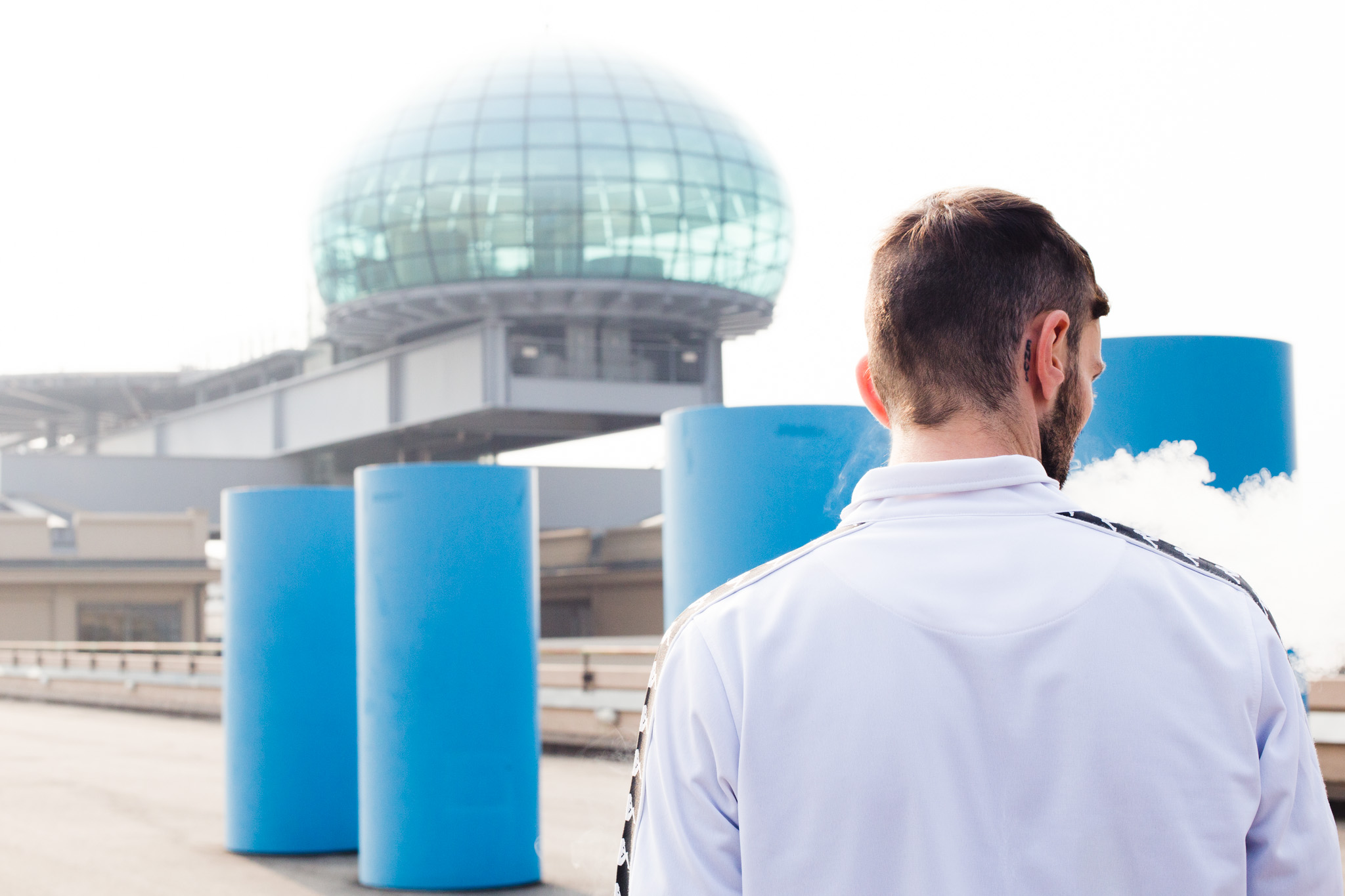
People inevitably think that the festival has changed the city, Turin was very much associated with a certain type of electronica in the nineties, which is gradually disappearing now. We reckon that you might have been one of the first local musicians to break out from the “alternative electronica = Boosta from Subsonica and nights down on Murazzi” formula. Was there anybody there in the early days of the Vaghe Stelle project with you? And who were the first artists – local, famous or otherwise – that inspired you?
I can still remember the first time, aged 19/20, that I brought a demo to Sergio (Ricciardone) in the old Xplosiva office at Vanchiglia. I was too shy to speak to him in person, but I knew I had to go through him if I wanted a chance to get into the electronic music world. The city and the music that is played here has changed so much since then. I can’t say I was the first to do anything, but the changing city changed me. Let’s call it a physiological transformation. The music world changed and so the music available in the city had to change. Guido, now co-art director of C2C, and I started a weekly night first at Puddhu, then at the Astoria, where we played our pick of the new international music scene. Other people were doing the same thing at the same time, but taking a different direction: Ale who is now XIII (@xiisc) and part of the Gang Of Ducks collective along with Beppe, who runs Details now, another great label, ran a night that alternated with Srsly at Puddhu, down on Murazzi.
“The Turin scene that I am part of today was born there. We would meet up every weekend, we grew up and changed together.”
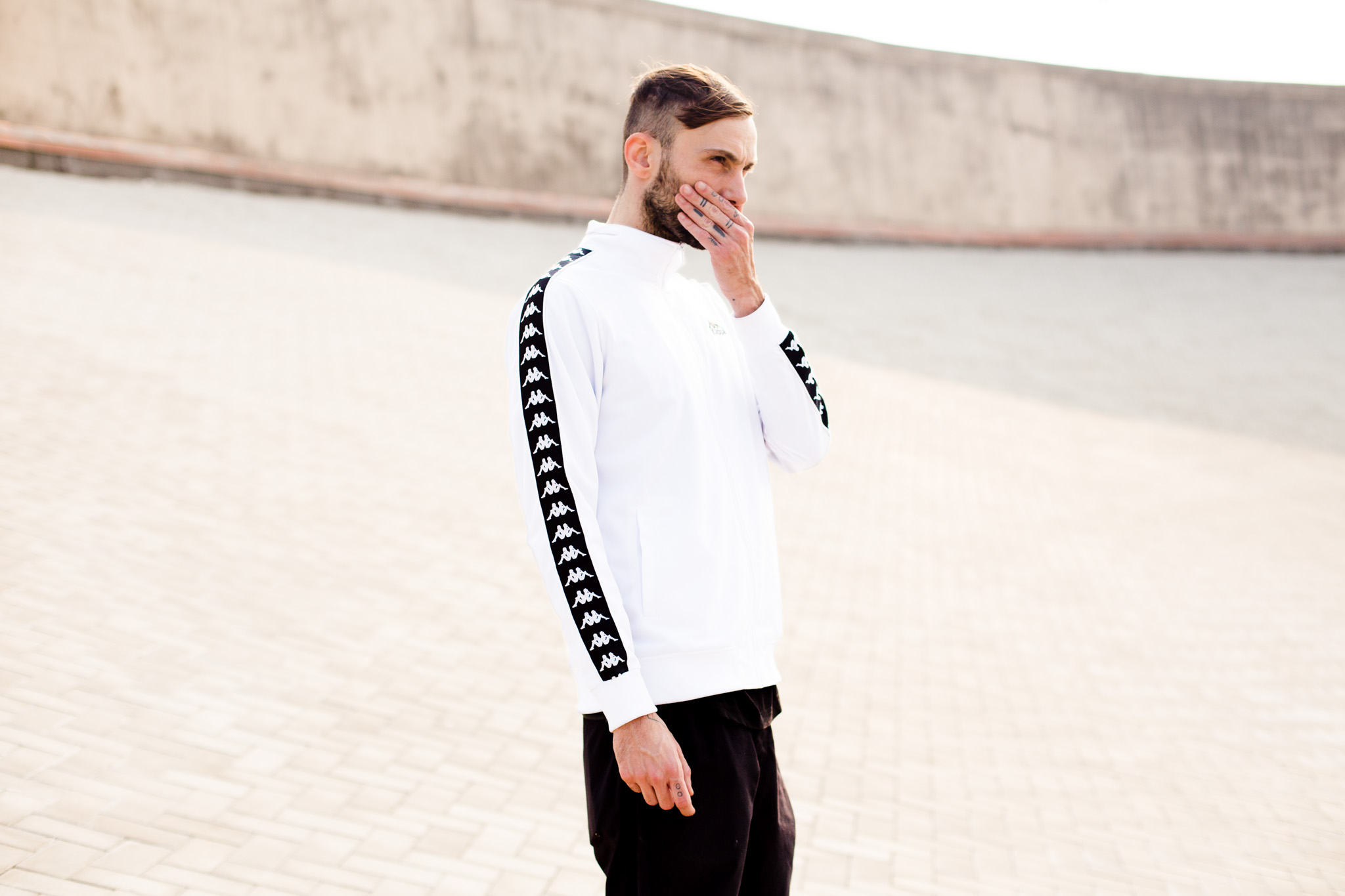
Club To Club often comes to Milan for previews and special events, perhaps because of a lack of venues in a city that struggles to cater for nightlife, and you have a lot of friends in Milan, including Lorenzo, who is part of the One Circle project with you. What differences do you notice between the two cities and which are the respective pros and cons for somebody in your line of work – that is, putting on nights, sound design and playing live?
Correct me if I’m wrong but I think that Turin still has a big hardcore scene that struggles to take hold globally, because of certain choices made and also an innate attitude that is perhaps a little provincial. Milan is, of course, the only international city in Italy, with a constantly changing panorama of events, art and fashion. Turin is much more boring and closed in on itself, with much less to offer and less desire to embrace the new. I don’t think that this is all bad, but loving this city and living here while aiming at an international audience certainly takes a bit more energy. There is no denying that Milan offers more opportunities and more visibility, and I like Milan, but I was born in Turin and I remain connected to it in a spiral that still has something to offer me.
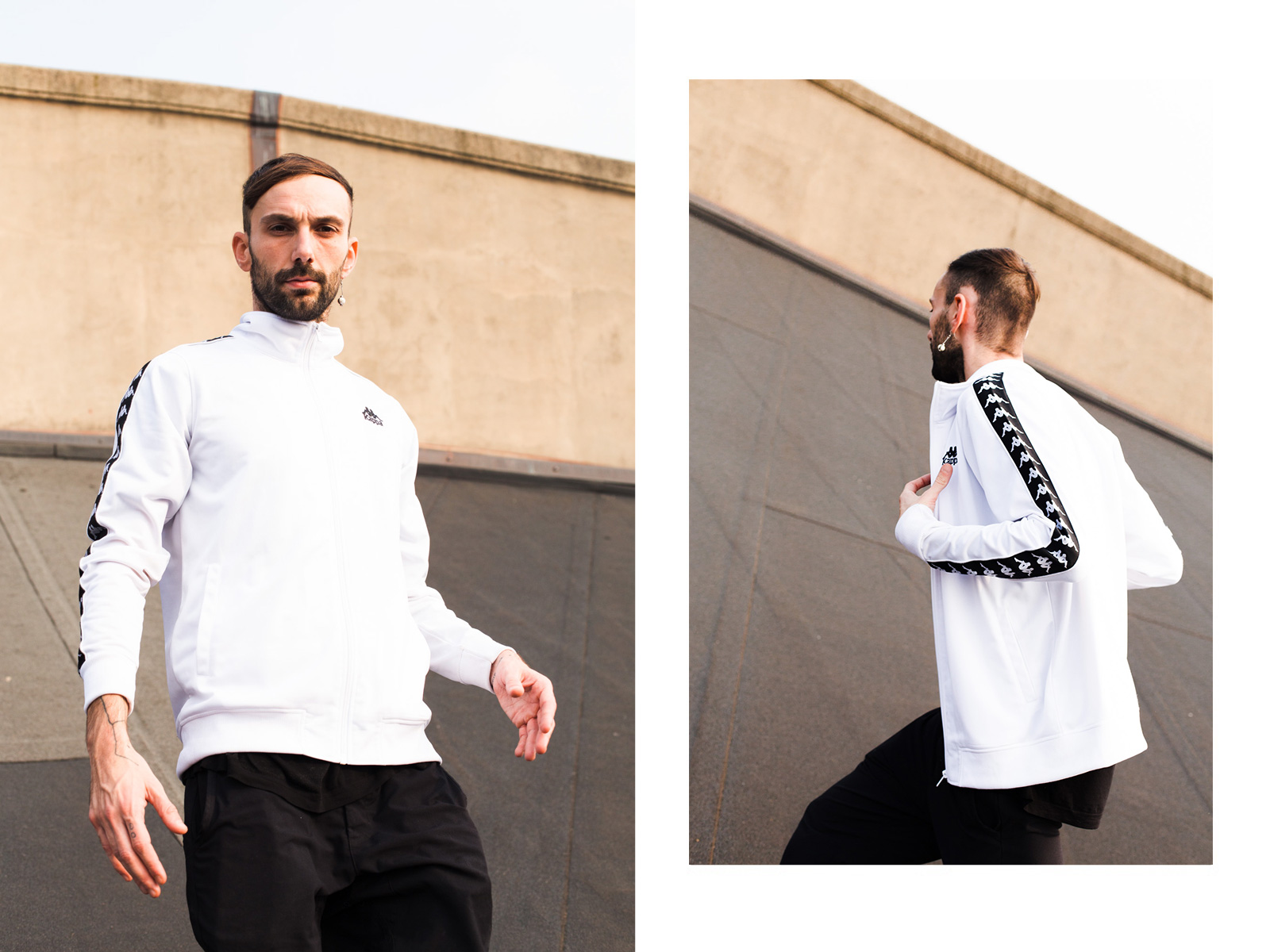
How do you split your time between working as an artist – Vaghe Stelle/Mana – and your work as a sound designer? Do you think the two environments influence each other, despite being two forms of music production that are, in some ways, diametrically opposite?
They are totally different approaches to making music. One is commissioned and therefore totally bound by standards and requests from a third person, brand or film maker. Making music for me is a release that I need to be happy, but I also need my work as a sound designer to live and eat, so I love them both.
They do influence each other, in one way or another, that’s inevitable. Thanks to my commercial work, I am an Ableton master, I’m very fast and have a sound library that enables me to create whatever comes into my head. Thanks to my artistic projects, I can bring an original touch to my commercial work.
“It’s like Batman and Bruce, the one can’t live without the other’s money. LOL.”
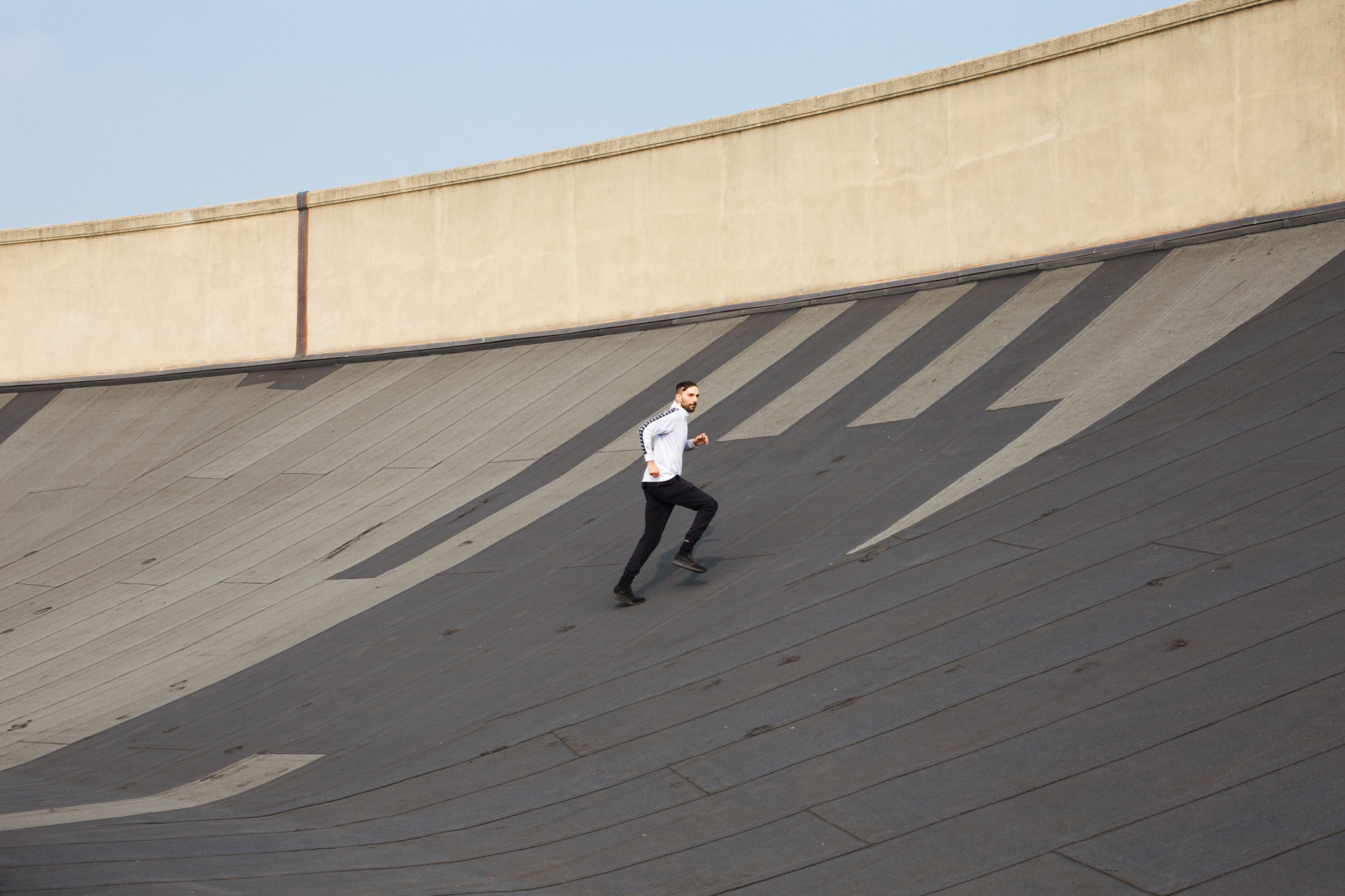
You will be bringing the first live manifestation of your new project Mana to the stage this year. How are you approaching this experience and how have you worked on it?
I worked with Stefano Maccarelli on the visuals and he helped me create my idea of playing inside a storm, a storm of clouds and lightning. We worked with two engineers who have made it so that my music generates random flashes and lightning bolts within a cloud of dense white smoke. I wanted my music to take on the face of the storm, precisely because of the simplicity and romanticism that it conveys.
Using the word ‘live’ is really a bit reductive when it comes to your music, we know that you aim more for a sound installation blended with various video inputs, intentionally interacting with the surrounding space. ‘Live’ can mean a lot, even Giorgio Moroder in playback is ‘live’. You come at it from more of a sound philosophy perspective, but could you explain this concept a little better to anybody reading who might not follow?
The term ‘live’ is always controversial when it comes to electronic music. People read ‘live’ and expect you to be doing it all: drums, synth pad, guitar, bass, singing and visuals. It’s like they expect The Rolling Stones on stage. I think that the term ‘live’ has been adapted to mean collective performance: producing your own music, changing the space and the sensations of your audience. Meet your audience halfway and go together to a place that doesn’t exist when you listen to the record at home while checking your email. It might make you dance or think intensely about things that you didn’t think existed, but
“The essence of the word ‘live’ is creating something that didn’t exist before.”
I don’t think it matters how many machines are on the stage or if you only play vinyl. It could be an iPad and a microphone: if it works, it works. The real challenge is learning to play different stages and venues as though they were instruments, so you can modify your show ad hoc without losing your initial intentions. If you can’t tour with your own sound system, being able to adapt and change depending on the location is fundamental. A bar or a festival venue can totally change a show, the sound is 80% of your work but the setting can work to your advantage or disadvantage too. The soundcheck is a crucial moment for understanding how and where to adapt your music to the venue.
Some of the pieces on your first EP, Creature, on Hyperdub, have Italian titles, others English. Then there’s one called Crystalline, which you also have tattooed on your wrist. Can you give us a quick track-by-track rundown of the meaning behind these titles?
Fade fades in, it’s dynamic, it grows slowly, there’s a hint of R&B but then comes back to a dissonant lead. It is the intro to a discussion that is about to start very intensely.
Crystalline is a statement for me. The theme of the album was honesty, being true and sincere about what you are. It is the most honest and sincere music that I could make, hence crystalline.
“I don’t compromise and I keep telling myself that I mustn’t be afraid of being what I am.”
Sei nove has two opposing parts. The ambivalence of being honest and being misunderstood and seen as a weirdo. I used my voice a lot, some kinda creepy sighs and whispers but with some piano and a very catchy, emo lead.
Runningman is not a reference to sci-fi or Schwarzenegger. It is the concentration of anxiety that hits me and makes me run away.
Wet life is a safe refuge. Everything is outside the bubble and it’s soft inside where nothing can get to you.
Rabbia came to me all at once, it was impulsive and not exactly rational. There’s a lot of energy that fades and transforms into the melancholy that comes once the adrenaline has dissipated.
Uno e solo because it’s good to be on your own.
Consolations is the first track I made, it was inspired by Liszt’s Consolations.
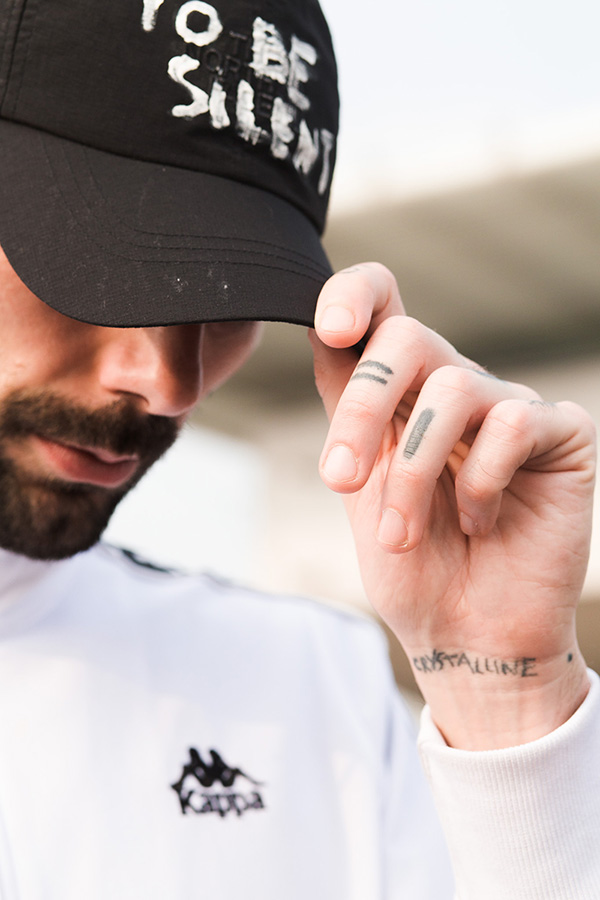
What does an album without bass mean to you? There is no bass on Creature: is this part of your evolution as you detach from clubbing? Or was it something you needed to do?
No, it was a necessity. I needed to leave space for the melodies and harmonies. To leave the synths and arpeggiators to create the right groove… I wanted room to breathe. I wanted to imply that percussion could have fitted, but I didn’t use any because I wanted the tracks to be sketches of ideas and hinted emotions. Vague – to use a word I was very fond of not so long ago [Mana’s former stage name ‘Vaghe Stelle’ translated as Vague Stars], ethereal and suspended but not in limbo.
“I wanted to leave a lot unsaid and make space for the imagination.”
What was the initial feedback from Hyperdub (and Kode9) when they listened to your latest work. And how did that collaboration begin in the first place?
I think that like all A&Rs, Steve needs to fall in love with the music before he releases it on his label and it was an honour to work with him and a team of people that I have a lot of respect for. We met a few years ago while we were working on A Great Symphony, a project where I created a soundtrack for a space in Turin, using only sounds recorded in the space. Then I sent him some new music this winter… I think he liked it, so he asked me to do an EP on Hyperdub.
You mentioned Batman and Bruce Wayne before, it was a very fitting comparison, so to round things off: where is Vaghe Stelle now and what is he doing?
Hahaha, Vaghe has gone on holiday for a while. I don’t know how or when, but I’ll do something as Vaghe Stelle again at some point. I’m not somebody who throws things away that easily.
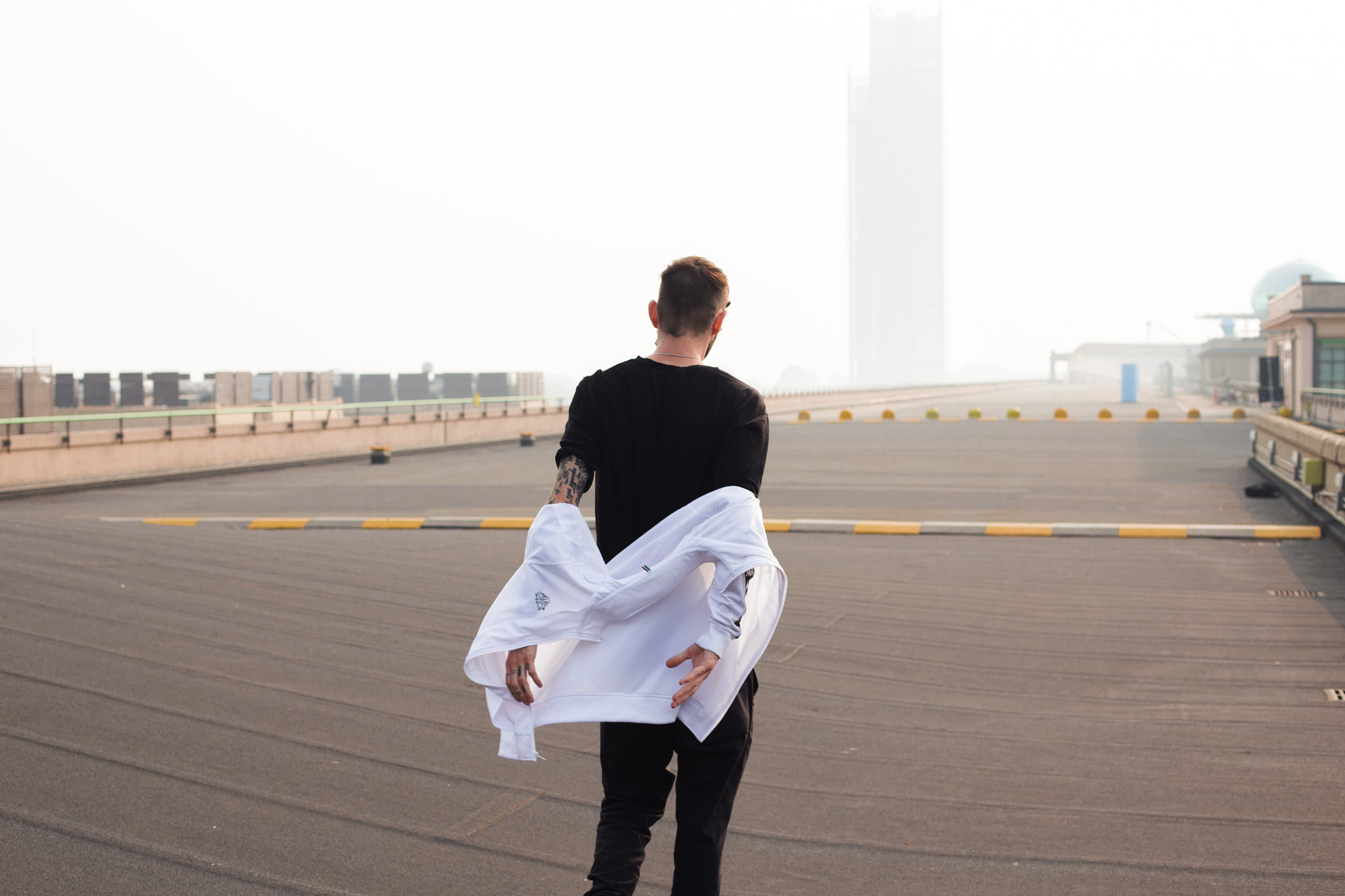
Special thanks: club to club
Photos & Interview: RFM
facebook.com/mmmmmmmaaaaannnnnaa
mana1.bandcamp.com
CIAO CRISTALLINI

